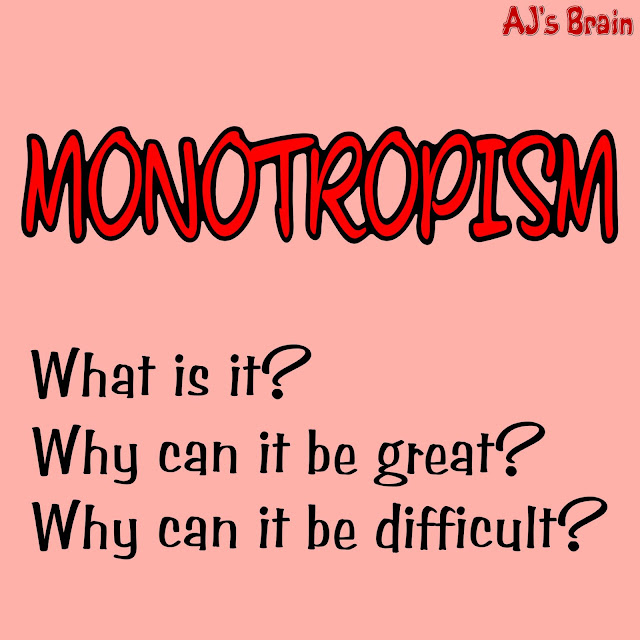Autistic people have been described as having ‘rigid and restrictive interests’. Monotropism is a theory of attention that explains why our interests may appear ‘restrictive’. Basically, those with a monotropic attention style get pulled into our interests very strongly. We experience higher arousal for a smaller number of things, which means that, while our interests may be more narrow, we often experience much more joy and pleasure from engaging in them.
Monotropism can be amazing! We can learn so much about our interests, have a lot of passion and motivation around them, and find them deeply comforting and regulating.
However, like most things, there are also challenges that come with having a monotropic attention style. It can be difficult to transition, move our brains on from negative things, and our interests can take up a lot of our time and energy.
When I get deeply engrossed in something, I often find it really hard to get anything else done. I struggle to look after myself, get work done, and keep in contact with friends and loved ones. It can feel like my interest takes over every part of my brain, and having to stop what I’m doing can be very distressing.
If I need to stop whatever I’m engaged in, I really need time to manage the transition. Often I need time to talk about my interests to ease the transition out of engaging in it.
For parents, this might be why kids have a difficult time stopping what they’re doing suddenly (such a video games). When you tell a child that their tea is ready, they might react negatively because they are suddenly expected to stop what they’re doing and adjust to being in the world again.
Or for teachers, this is why it might be difficult to finish our work and get ready for play time, and why we might need to finish whatever we’re doing before we move onto the next thing. Sometimes at school, I would avoid starting work and getting engaged with a task because I knew I’d have to pull myself out of the tunnel (and doing that multiple times a day is exhausting)
When we come out of our ‘attentional tunnel’, we suddenly have to process our surroundings again all at once, which can be very overwhelming, especially if this includes getting told off for being in the attentional tunnel, or for struggling to come out of it.
Having a monotropic mind can be both beneficial, and disabling to me. I love getting engrossed in my interests and love the comfort and predictability, but it can make it difficult to get things done and switch my attention to other things.












.jpg)
.jpg)
.jpg)
.jpg)
.jpg)
.jpg)
.jpg)
.jpg)






